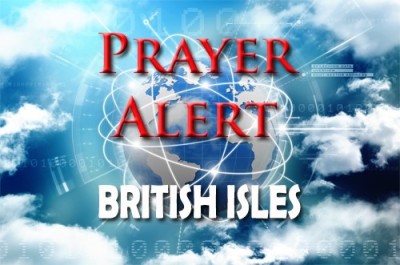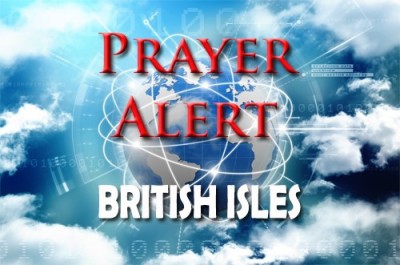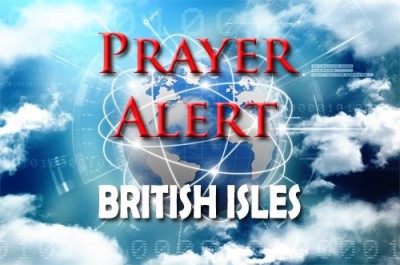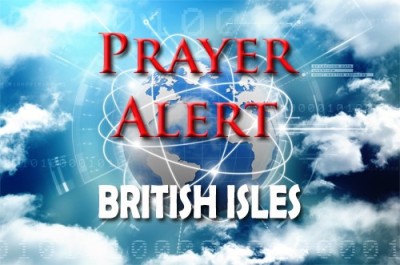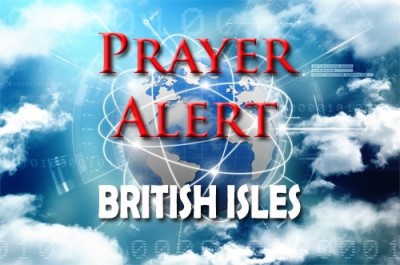App: Interseed Online House of Prayer
26 Jun 2025Join the Online Global Prayer Movement with the Interseed App!
Imagine thousands of believers from every nation, tribe, and tongue united in prayer—lifting their voices day and night before the throne of God. With the Interseed Online House of Prayer app, this vision is becoming a reality.
Developed to mobilise united, Scripture-led prayer for the nations, Interseed is more than just an app—it’s a growing global prayer family.
Whether you're on a lunch break, commuting, or awake in the night, you can log in and instantly join with other followers of Jesus to intercede for cities, nations, unreached people groups, and urgent needs.
At the heart of the app is the Prayer Wall—a live feed where believers post real-time prayer requests and praise reports. You can respond with a tap, adding your voice to prayers already rising like incense before the Lord (Revelation 5:8). Every “amen” is a vote of faith in the power of God to move!
You’ll also find daily prayer points, themed prayer rooms, and video devotionals from prayer leaders around the world. Whether you're passionate about revival, mission, justice, healing, or the next generation, there’s a space for you to engage and grow in your calling as an intercessor.
Dr. Jason Hubbard, Director of International Prayer Connect, says:
"We’re witnessing a new era of global, united prayer—Interseed is helping us connect and pray as one Body across time zones and cultures."
We invite you to download the app, create a free account, and take your place in this extraordinary, end-time movement of prayer.
- Post your own prayer requests
- Pray for others and mark them as prayed for
- Join virtual prayer rooms focused on strategic regions
- Receive real-time notifications for urgent global needs
- Be strengthened and encouraged through community prayer
Let’s fill the airwaves with prayer.
Let’s believe for awakening, revival, and the fulfilment of the Great Commission in our day.
Download the Interseed app today on iOS or Android
Visit https://interseed.io to learn more
Together, let’s build a canopy of prayer across the nations—until the earth is filled with the knowledge of the glory of the Lord!
Vanessa Joy Lancellotti was a newlywed in 2016 when she suddenly suffered a ruptured arteriovenous malformation in her brain. Unaware she even had this condition, the terrifying incident occurred while having tea with her sisters. As her pain intensified, she collapsed and was rushed to the hospital, fearing she was about to die. En route in the ambulance, she prepared to meet Jesus, repenting and reviewing her life. Then, unexpectedly, she experienced what she believes was a supernatural encounter: pain and fear vanished, and she found herself in a place of pure peace and radiant light. There she encountered Jesus, who embraced her lovingly and told her, “It is not yet your time.” Though never clinically dead, Vanessa believes she was taken to paradise. Her miraculous survival transformed her spiritually, igniting a deeper relationship with Christ and a new understanding of the Holy Spirit’s power. Today, she shares her story through her book, Miracles Really Do Happen, encouraging others with the hope and reality of Christ’s love and healing presence. * Near Death Experience
The U.S. Supreme Court has upheld Tennessee’s law banning gender transition surgeries and hormone treatments for minors, ruling 6-3 that the law does not violate the Fourteenth Amendment’s Equal Protection Clause. The decision in Skrmetti v. United States establishes a precedent allowing similar legislation in over 20 states to remain in effect. Christian leaders have welcomed the ruling as a decisive step in protecting children. Mat Staver of Liberty Counsel called it a “victory for children everywhere,” arguing that experimental procedures should not be allowed under the guise of equality. Tony Perkins of the Family Research Council praised the affirmation of FRC’s “SAFE Act” model. Brent Leatherwood of the Southern Baptist Convention’s Ethics & Religious Liberty Commission emphasised that the state has a duty to protect children from harmful and irreversible decisions. However, progressive voices such as Rev. Paul Brandeis Raushenbush of Interfaith Alliance criticised the ruling as religious overreach. The case marks a pivotal moment in defining the boundary between child protection and personal medical autonomy in U.S. law.
'A stain on our society': Yvette Cooper promises change after 'damning' grooming gang report
20 Jun 2025A damning report by Dame Louise Casey has revealed systemic failures across England and Wales in addressing grooming gangs that have sexually exploited thousands of children. Home Secretary Yvette Cooper responded with an unequivocal apology to victims and survivors, announcing a full national inquiry and promising the most comprehensive reforms ever taken by a UK government to combat child sexual exploitation. The Casey report highlights years of obfuscation by public institutions, with suspects often disproportionately of Asian heritage or with ethnicity data missing and agencies failing to act. Recommendations include broadening the legal definition of rape, improving data sharing, and initiating a nationally coordinated criminal investigation. A new national operation will be led by the National Crime Agency. Controversially, Cooper also announced that asylum seekers found guilty of grooming or sexual offences will be barred from claiming refuge in the UK. Criticisms remain over previous government inaction and political posturing, yet survivors and campaigners have welcomed the long-overdue steps. Casey called for definitive action, stating, “We must right the wrongs of the past.”
The UK government has confirmed that the HS2 high-speed rail project will be delayed beyond its 2033 target, with no revised opening date provided. Transport Secretary Heidi Alexander described the project as an “appalling mess,” citing a "litany of failure" in cost management and missed deadlines. Originally budgeted at £33bn in 2012, costs have surged by £37bn, with some estimates reaching up to £106bn. Alexander criticised years of ineffective contracts, poor oversight, and scope changes under successive Conservative governments. Two recent reports into HS2’s management have exposed systemic failings: premature construction, lack of technical expertise, and bloated administrative structures. Mark Wild, HS2’s current CEO, acknowledged external pressures like the pandemic and Brexit but emphasised persistent internal issues. The project's scope has been repeatedly reduced, with the Birmingham-Leeds and Birmingham-Manchester links scrapped. The government has now appointed Mike Brown, former Transport for London commissioner, as the new HS2 chair to lead a reset in UK infrastructure planning. Alexander promised a further update on costs and deadlines by the end of the year.
Zhenhao Zou, a 28-year-old Chinese engineering student, has been sentenced to life with a minimum term of 24 years in the UK for drugging and raping 10 women across London and China, with fears that he may have assaulted dozens more. Following a harrowing trial, Zou was found guilty of 11 counts of rape, along with multiple charges including voyeurism, false imprisonment, and possession of drugs and extreme pornography. Only two victims have been identified, while the remaining eight are yet to come forward. Police discovered hundreds of hours of filmed assaults, suggesting over 50 more potential victims. Zou used WeChat and dating apps to lure fellow Chinese students to his flats, where he drugged and raped them, often filming the abuse. Officers believe Zou may be one of the UK’s worst sex offenders. The case has chilling similarities to past high-profile sex crimes, such as Reynhard Sinaga and Stephen Port. With support from Chinese authorities, UK police are now exploring ways to reach victims in China. Zou remains under investigation as more women come forward. See
In the most significant and concerning change to abortion legislation in England and Wales in nearly 60 years, MPs have voted by a landslide to decriminalise women who end their pregnancies outside the existing legal framework. The amendment, brought by Labour MP Tonia Antoniazzi, will prevent police from investigating or prosecuting women, such as those who miscarry after taking abortion medication beyond 24 weeks. The change does not alter the 24-week limit or the requirement for clinical oversight, but removes legal penalties for the women themselves. Antoniazzi argued that vulnerable women deserve compassion, not criminalisation, citing distressing cases such as Nicola Packer’s prosecution after a stillbirth. The amendment was supported by 379 MPs and over 50 organisations, including the Royal College of Obstetricians and Gynaecologists. While praised as a milestone for reproductive rights, the vote drew criticism from pro-life advocates such as SPUC, who warned that it removes all legal protection for unborn children. The legislation still requires passage through the House of Lords before becoming law.
A major international study has warned that the world could exceed the critical 1.5°C global warming threshold as early as 2028, if carbon emissions continue at current rates. The study, published in Earth System Science Data, reveals that just 143 billion tonnes of carbon dioxide remain in the global "carbon budget" to stay within the Paris Agreement’s 1.5°C target. At an annual rate of 46 billion tonnes, that budget will be exhausted in under three years. Scientists stress that climate change is not only worsening but accelerating, with 2024 marking the first year average global temperatures exceeded 1.5°C - though this does not yet breach the Paris threshold, which is measured over decades. The consequences of unchecked warming include rising sea levels, ocean warming, extreme weather, and irreversible environmental damage, particularly affecting the world’s poorest. While full reversal is unlikely, urgent emissions reductions could still slow the pace and severity of warming. Experts call for political will and rapid action, warning that humanity is now in a crucial window to prevent far more catastrophic outcomes.



